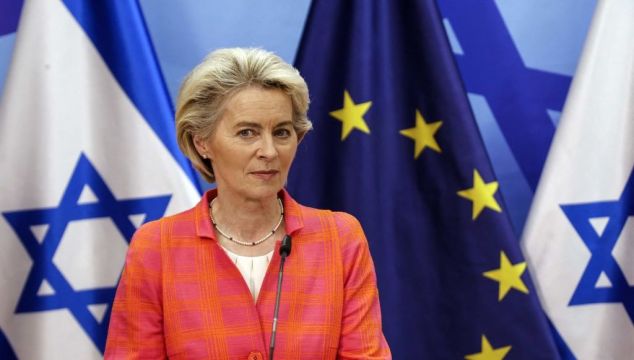Minister of State Peter Burke has said it was important for the European Union to speak with one voice in its call for a pause in the conflict in Gaza to allow vital aid to get to the most vulnerable people.
“We do need this conflict to be resolved,” he told RTÉ radio’s Today show presented by Colm Ó Mongáin.
There needs to be a “pause in atrocities” to create a corridor to allow vital humanitarian aid reach people in a vulnerable situation, he said.
There will also be “corridors” in place to get Irish citizens out of Gaza if there is a cessation in conflict, said Mr Burke.
“One of the key challenges for all sides when you're trying to study and assess the impact on the ground is the rise of disinformation. And unfortunately, when you have a conflict like this, it's going to be very prominent across all social media, and it can be difficult for governments to get at the truth.
“And that's why we have competent authorities like the United Nations on the ground. And when you have the secretary general on the ground physically, that really underscores the critical importance of getting that aid in.”
When queried about disinformation, Mr Burke said that it was known from the UN authorities that fuel was of great importance with many utilities being cut off. There was proof of that, he said.
“We as a government and as a European Union really want to ensure that international law is put first.”
Mr Burke also said there needed to be accountability for actions, but the focus now needed to be on dialogue “trying to ensure we have those corridors open, trying to ensure that we have humanitarian support for those who need it most in a very densely populated area and working with regional actors.”
The UN was on the ground and had a network of contacts. They could see first hand what was happening and what was needed. The EU would be supporting efforts to open humanitarian corridors.
The EU was trying to keep key utilities like hospitals going, to keep the most vulnerable, protected. “No one would have a disagreement with that. That's how we tripled aid into the region in terms of our spend, because we know there are so many people at risk.
"And the Irish government has also increased its humanitarian aid and made a one stop allocation of over €13 million on the ground in addition to the money we're already paid.”
Mr Burke said it would be up to "the courts" essentially to determine and make an adjudication on what international laws had been breached.
“But what we're very clear on is that when you are giving an order or asking people to move into a very densely populated region, in a very small area, a very small strip - that is reckless in the extreme.
"When you go about bombing public infrastructure, infrastructure, where civilians are going to be very close, densely, that is putting a huge risk of human life, risking families, children, very vulnerable people. And obviously, determination of that will be a day in the courts at a future point in time.”
The focus now needed to be on de-escalation, he urged.
“Obviously trying to get a ceasefire, trying to ensure that you have a pause in atrocities, because we've seen how many UN people on the ground have been killed so far in this conflict, working, trying to protect the most vulnerable.
"And when you're asking people to go in, NGOs, people on the ground into a very dangerous region, you need a pause. You need a corridor to ensure that they can get those supplies in and get them to the most vulnerable in that area. And that's what we're working to try and achieve.
“We are obviously working closely with our embassy there, trying to ensure that we have lines of communications in terms of anyone working with NGOs and we will be well-equipped when pauses do happen to try and have corridors to get people out.
"And the UN again is the competent authority that we work through because they have the footfall on the ground, they work with NGOs to establish what exactly is happening, to get real time information back to our embassies where we can work and give the best possible advice from there.”
Ireland was not yet at the stage where it would be necessary to send in the Ranger wing, he said.
Irish troops taking part in the UNIFIL mission were trying to keep peace in the region.
“Obviously, missions change, and they would be reviewed in real time. It's not a case whereby something is going to move drastically ahead and the UN mission won't be updated on it. The protection of our troops is absolutely at the forefront of our minds in that region, which is a very dangerous region at the moment.”







